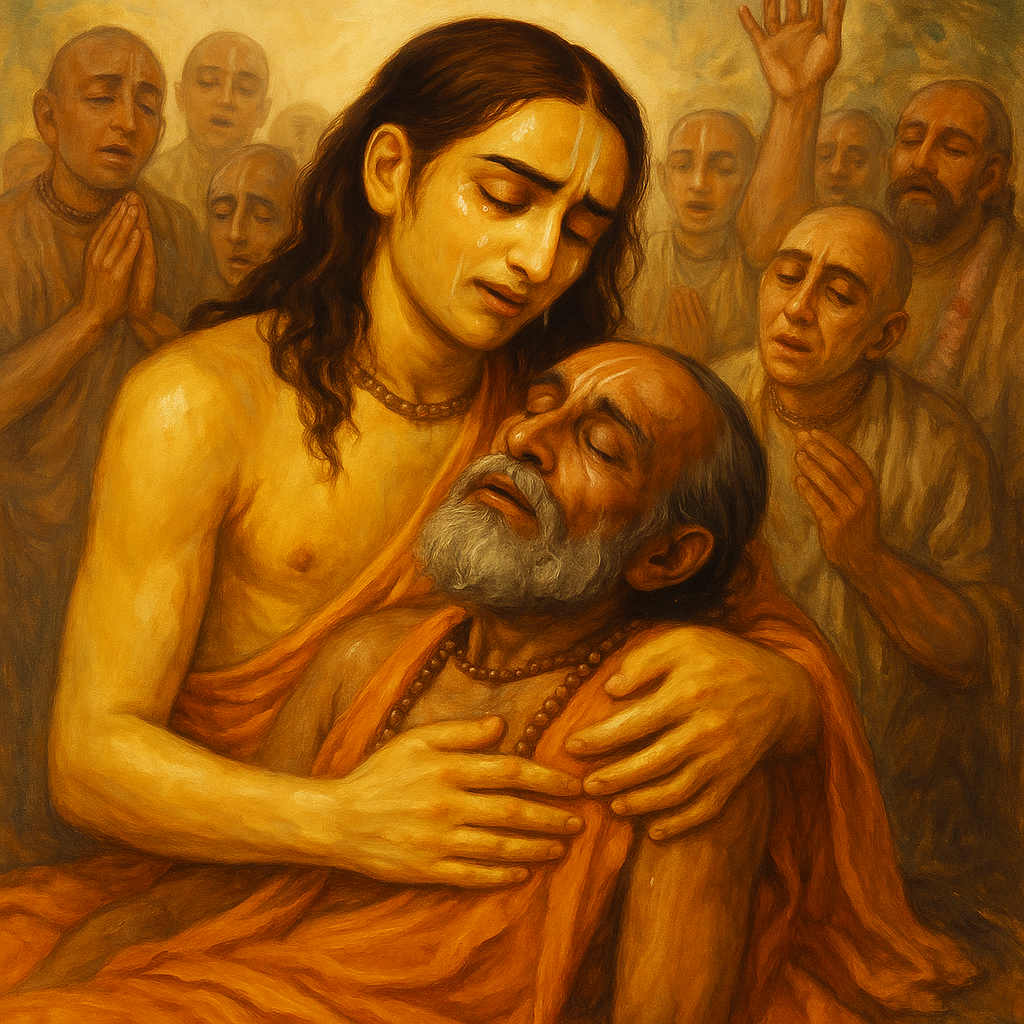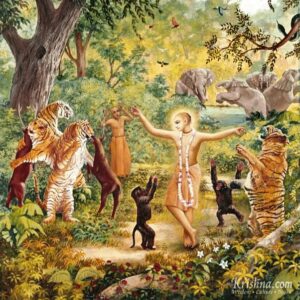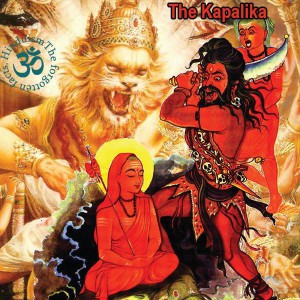Haridāsa’s Humble Residence in Jagannātha Purī
After Śrī Caitanya Mahāprabhu took sannyāsa and settled in Jagannātha Purī, His dear devotee Haridāsa Ṭhākura also came to reside there. Out of deep humility and respect for temple protocol, Haridāsa—though spiritually exalted—never entered the Jagannātha Temple due to his Muslim birth. Instead, he lived in a simple hut near the sacred Siddha-bakula tree, not far from the residence of Lord Caitanya.
There, absorbed in the nectar of the holy name (nāma-rasa), Haridāsa chanted 300,000 names of the Lord every day, remaining detached from worldly affairs. Śrī Caitanya Mahāprabhu would personally visit him daily, bringing mahā-prasāda and sitting by his side, relishing his pure association.
Although Haridāsa never directly saw the deity of Lord Jagannātha, he was constantly immersed in divine remembrance. Mahāprabhu once told him:
“You are always seeing Kṛṣṇa—in His holy name.”
Weakened Body, Unbroken Devotion
As the years passed, Haridāsa’s body grew weak. He could no longer complete his daily vow of chanting, which filled him with sorrow. One day, he humbly spoke to Lord Caitanya:
“My Lord, my body is failing, and I am unable to finish my chanting. I have only one desire—please allow me to leave this world while still beholding You and chanting the holy name. I do not wish to witness the pain of separation when You conclude Your manifest pastimes.”
Tears streamed down his cheeks as he folded his hands. His only fear was separation from the Lord.
The Lord’s Compassionate Consent
Hearing this, Lord Caitanya’s heart melted with love. With gentle words He replied:
“O Haridāsa, your life is perfect. Your every wish will be fulfilled. Tomorrow, I will come and grant you My darśana.”
The next day, Lord Caitanya arrived with His intimate associates—Svarūpa Dāmodara, Rāmānanda Rāya, and others—bringing mahā-prasāda from the Jagannātha Temple. They sat before Haridāsa, who was now frail and barely able to rise.
With great effort, Haridāsa placed the Lord’s lotus feet on his heart, gazed lovingly at His moonlike face, and began to chant:
“Śrī Kṛṣṇa Caitanya… Śrī Kṛṣṇa Caitanya…”
A Glorious Departure from the World
While chanting, tears streamed from Haridāsa’s eyes, and with Lord Caitanya’s feet on his chest and His name on his lips, Haridāsa Ṭhākura departed from this world.
The Lord, overwhelmed with love, caught his body in His arms. Ecstatic kīrtana filled the air as Śrī Caitanya danced in divine madness, embracing the lifeless body of His devotee. The assembled Vaiṣṇavas wept in both sorrow and joy.
With His own hands, Mahāprabhu anointed Haridāsa’s body with sandalwood paste, covered it with garlands, and bathed it with His tears. Then, leading a grand procession to the sea, the Lord carried Haridāsa’s body, accompanied by kīrtana and the chanting of auspicious mantras.
Śrī Caitanya Performs the Funeral Rites
At the seashore, the Lord personally bathed Haridāsa’s body in the ocean and declared:
“This sea is now a great tīrtha, for it has touched the body of Haridāsa Ṭhākura.”
Śrī Caitanya Himself dug a grave in the sand. He placed Haridāsa’s body inside, covered it lovingly, and cried out:
“Haridāsa! Haridāsa! You are the crest jewel of all the devotees of the Lord!”
After the burial, the Lord went to the Jagannātha Temple and begged for mahā-prasāda. He organized a grand festival in Haridāsa’s honor and served prasāda with His own hands to all the devotees.
Never before, in any age, had the Supreme Lord performed the funeral rites of His devotee so intimately.
Declared the Nāmācārya of the World
Later, in a public gathering, Mahāprabhu proclaimed:
“From this day forward, let the whole world know that Haridāsa Ṭhākura is the Nāmācārya—the ācārya of the holy name.
Whoever hears or chants his glories will develop firm faith in the holy name and attain the shelter of the Lord’s lotus feet.”
Lessons to Be Learned:
- True Humility: Though the most honored by the Lord, Haridāsa considered himself the most fallen.
- Divine Recognition: The Lord personally glorifies those fully surrendered to His holy name.
- Perfect Departure: A life of pure chanting brings a death surrounded by the Lord and His devotees.
- Transcending Birth: The power of the holy name transcends caste, religion, and background.
- Śāstric Assurance:
“Simply by chanting the holy name of the Lord, one can attain the highest perfection of life—even while living outside caste or creed.”
– Śrī Caitanya-caritāmṛta, Antya-līlā 11.43–55
Origin of the Story:
This divine pastime is recorded in Śrī Caitanya-caritāmṛta (Antya-līlā, Chapter 11), and is elaborated upon in The Divine Name, Caitanya-bhāgavata, and the writings of Śrīla Bhaktisiddhānta Sarasvatī Ṭhākura and Śrīla A.C. Bhaktivedānta Swami Prabhupāda.



